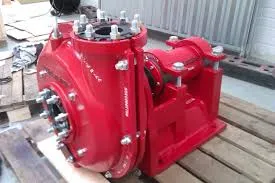English
- Afrikaans
- Albanian
- Amharic
- Arabic
- Armenian
- Azerbaijani
- Basque
- Belarusian
- Bengali
- Bosnian
- Bulgarian
- Catalan
- Cebuano
- Corsican
- Croatian
- Czech
- Danish
- Dutch
- English
- Esperanto
- Estonian
- Finnish
- French
- Frisian
- Galician
- Georgian
- German
- Greek
- Gujarati
- Haitian Creole
- hausa
- hawaiian
- Hebrew
- Hindi
- Miao
- Hungarian
- Icelandic
- igbo
- Indonesian
- irish
- Italian
- Japanese
- Javanese
- Kannada
- kazakh
- Khmer
- Rwandese
- Korean
- Kurdish
- Kyrgyz
- Lao
- Latin
- Latvian
- Lithuanian
- Luxembourgish
- Macedonian
- Malgashi
- Malay
- Malayalam
- Maltese
- Maori
- Marathi
- Mongolian
- Myanmar
- Nepali
- Norwegian
- Norwegian
- Occitan
- Pashto
- Persian
- Polish
- Portuguese
- Punjabi
- Romanian
- Russian
- Samoan
- Scottish Gaelic
- Serbian
- Sesotho
- Shona
- Sindhi
- Sinhala
- Slovak
- Slovenian
- Somali
- Spanish
- Sundanese
- Swahili
- Swedish
- Tagalog
- Tajik
- Tamil
- Tatar
- Telugu
- Thai
- Turkish
- Turkmen
- Ukrainian
- Urdu
- Uighur
- Uzbek
- Vietnamese
- Welsh
- Bantu
- Yiddish
- Yoruba
- Zulu
Telephone: +86 13120555503
Email: frank@cypump.com
Nov . 27, 2024 03:27 Back to list
Efficient Solutions for Slurry Handling with Vacuum Pumps in Industrial Applications
Understanding Slurry Vacuum Pumps A Comprehensive Overview
In various industrial applications, the movement and disposal of slurries—mixtures of liquid and solid particles—are essential processes. Slurry vacuum pumps play a critical role in managing these tasks efficiently. Their unique design and operation enable them to handle challenging materials that traditional pumps might struggle with. This article delves into the intricacies of slurry vacuum pumps, their working principles, advantages, applications, and maintenance considerations.
What is a Slurry Vacuum Pump?
A slurry vacuum pump is specially designed to transport slurries from one location to another, utilizing the principles of vacuum technology. Unlike standard pumps that may be overwhelmed by the abrasive and viscous nature of slurries, slurry vacuum pumps are built with robust materials and configurations to handle heavy, gritty, and corrosive mixtures.
Working Principle
The operational efficiency of slurry vacuum pumps relies on several key components. At its core, the pump creates a vacuum by removing air from the system, which allows atmospheric pressure to push the slurry into the pump. The design typically includes
- Impellers These are crucial for moving the slurry through the pump. Impellers are constructed from durable materials to withstand wear and tear caused by solid particles. - Vacuum Chamber This section of the pump maintains the vacuum necessary for operation. It helps in creating the pressure difference that is vital for suction.
- Discharge Port Once the slurry is pumped, it exits through the discharge port. Depending on the application, the discharge can direct the slurry to treatment facilities, storage tanks, or processing units.
Advantages of Slurry Vacuum Pumps
Using slurry vacuum pumps offers several advantages
1. Versatility These pumps can handle a range of slurry types, including those with varying concentrations and solid sizes, which is beneficial in industries like mining, wastewater treatment, and food processing.
2. High Efficiency The vacuum principle allows for the efficient movement of slurries with lower energy consumption compared to traditional methods of slurry transport.
3. Reduced Wear Since slurry vacuum pumps are designed to manage abrasive solids, they typically require less maintenance and have a longer operational life when compared to conventional positive displacement pumps.
4. Effective Handling of Viscous Materials The ability to deal with thick and sticky slurries makes these pumps essential for applications involving heavy manufacturing processes.
slurry vacuum pump

Applications of Slurry Vacuum Pumps
Slurry vacuum pumps are employed in various sectors, including
- Mining and Minerals Processing Slurry vacuum pumps are crucial for transporting ores and tailings, where the efficient movement of materials can directly impact production rates.
- Wastewater Treatment In wastewater treatment plants, these pumps help manage sludge effectively, ensuring that solids are efficiently transported for processing.
- Food and Beverage Industry They can be used in the transport of food processing waste and other viscous materials, providing hygienic and efficient solutions.
Maintenance Considerations
While slurry vacuum pumps are engineered for durability, regular maintenance is vital to ensure optimal performance. Here are some key maintenance tips
1. Regular Inspections Periodic checks of all components, including impellers and seals, can help identify wear and tear before issues arise.
2. Flushing Systems Implementing a flushing system can prevent the buildup of solids that may cause blockages or reduce efficiency over time.
3. Lubrication Ensure that moving parts are adequately lubricated to minimize friction and prolong service life.
4. Monitoring Performance Keeping an eye on pump performance metrics such as flow rate and energy consumption can assist in identifying potential problems early.
Conclusion
Slurry vacuum pumps are integral to various industries requiring the efficient handling of slurries. Their unique construction and operation make them indispensable tools for ensuring smooth processes, whether in mining, wastewater management, or food processing. By understanding their functionality and maintaining them properly, industries can benefit from their robust capabilities for years to come.
-
Reliable Non-Clog Sewage Pumps with GPT-4-Turbo Tech
NewsAug.04,2025
-
High-Performance Air Pumps for Sand & Gravel | Efficient Transport
NewsAug.03,2025
-
ISG Series Vertical Pipeline Pump - Chi Yuan Pumps Co., LTD.|Energy Efficiency, Corrosion Resistance
NewsAug.03,2025
-
ISG Series Pipeline Pump - Chi Yuan Pumps | Energy Efficiency&Compact Design
NewsAug.03,2025
-
ISG Series Vertical Pipeline Pump - Chi Yuan Pumps Co., LTD.|High Efficiency, Low Noise, Durable
NewsAug.02,2025
-
ISG Series Vertical Pipeline Pump - Chi Yuan Pumps | High Efficiency, Low Noise
NewsAug.02,2025










